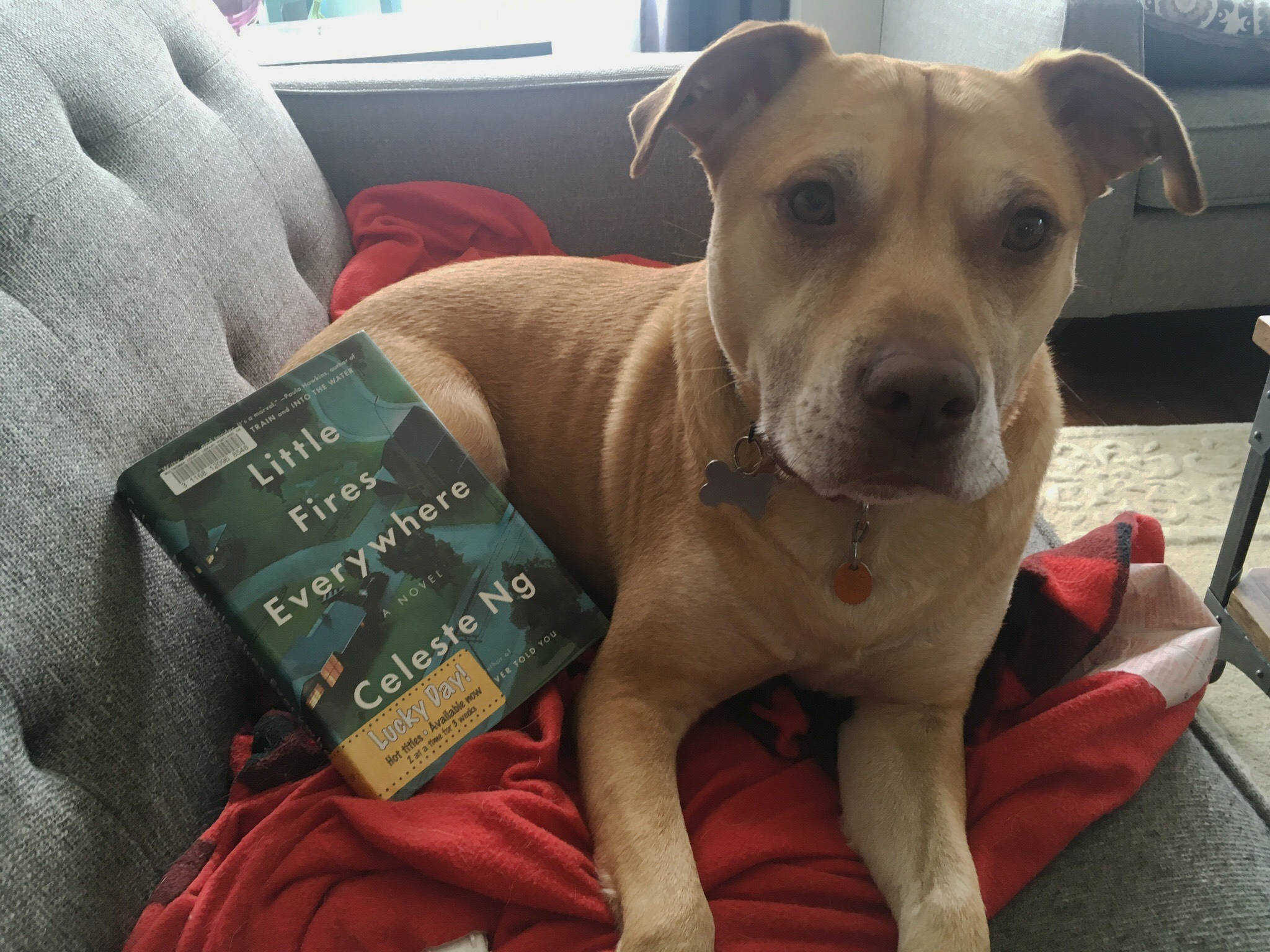Little Fires Everywhere
I keep hearing about Celeste Ng! Always the exclamation mark after. I found Little Fires Everywhere on the “It’s Your Lucky Day!” shelf at my library. It was the very book I was looking for—so yes, it was a lucky day indeed.
MIA AND MORE
The hero of the story is Mia, a thirty-six-year-old single mother, photographer, and nomad. She’s a deeply talented artist with a vision she follows doggedly. There is something mystical about her.
Everything about the way Mia lives defies society’s expectations. She is loved by the characters and also by me. It may seem irresponsible for her to drag her child all over the country, never staying in one place more than a few months, but I got over that quickly. She’s figured out a way to live that is right for her. So few of us ever find that in our own lives. We never even get to know ourselves well enough to figure out what “the right way to live” means for us. No matter how hard we try to avoid it, we end up doing what’s expected.
The story is really about the various ways people react to Mia. The other characters are enchanted, they are jealous, they admire her, they reject her. As a result, they go out of control in their own unique ways, while Mia remains unaffected by it all. Through her, the book tackles the problem of our age: the supposed utopic suburbia; accommodation to the expectations of society; the symptoms of said accommodation; the rejection of it; the reaction to the rejection.
The concept itself is not groundbreaking. Millennials have been making complaints based on this theme since we became millennials.
Ng applies this theme to the concept of motherhood. Not very trendy, but ubiquitous. Even millennials sometimes become parents these days. More and more often, they choose not to, but it is always on our minds, always on the table, because it is always a possibility. And with modern medicine, it looks different now. There are . . . options . . . for becoming, or not becoming, a mother.
Questions are raised: Is it kidnapping if you take your own child? Is it wrong to give your child away? Who decides such things? Does it matter?
What makes this book special is that all these options are explored neutrally. No single one is right or wrong. There is no judgment.
I was dog sitting my buddy Hank while I read.
MFA
This book oozes MFA. I want to hate MFA programs, especially the prestigious ones, and the writing of the writers who emerge from those programs. I want to support the scrappy, poor writers who have made their own ways and developed their own styles. We should each have our own journeys rather than adopting some institution’s idea of perfect, drilled into us for far more money than we will ever earn.
And yet, against my better instincts, I often love these fancy writers. I can’t help but adore Ann Patchett for the absolute whopper of a story that is Bel Canto. I share a similar appreciation for Celeste Ng and Little Fires Everywhere.
As someone who struggles with writing plot, I’ve spent the last few days ruminating on the perfectness of this one. Everything ties so neatly, so perfectly into the narrative, to the intention of the story. I may even map it out in order to study the construction of the story.
Unlike some other MFA novels, Little Fires Everywhere is a quick and easy page-turner that doesn’t compromise its intelligence.
Allow me to personify. This book looks you straight in the eye and places its hands gently but firmly on your shoulders. You notice that you are the same height. The book is not wearing elbow patches. The book is not trying to be anything; it just is. And it is your equal.
So: Are MFAs good? Are they bad? Does it matter?
CONCLUSION
The central study of this book is not unique, but its thesis is. The vaguest of spoilers below.
The characters don’t always do what’s right—but who’s to define that? When these characters break out of their molds, they roam free and wild and unapologetic. To break free, damage is done. The rules of society are so strict that, to be broken, they must be shattered. There may be casualties. But does that mean we should never become ourselves? No—once we find the guiding force of our lives, we must follow it. Morality is relative.

